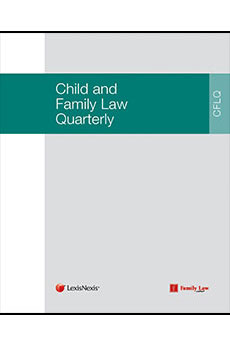- News & Comment
-
Online Shop
Online Services
Looseleafs
Law Reports
Books and eBooks
-
CPD & Events
Webinars
Events
- Authors
- About Family Law
- Contact


Closed material procedures were originally introduced in the UK to enable courts to hear national security sensitive information in immigration cases in the absence of the non-government party and their lawyer. They were subsequently extended to the counter-terrorism context and, ultimately, to all civil proceedings under the Justice and Security Act 2013. However, they were not made available for use in the Family Court, and until recently, have only been used in very limited and exceptional circumstances. The case of Re X, Y and Z (Disclosure to the Security Service) [2016] EWHC 2400 (Fam) has potentially opened the Family Court up to using closed material procedures in cases concerning the radicalisation of children. This article briefly explores the importance of that case. It then outlines the history and development of closed material procedures in the UK to set the case in its broader legal context before considering the potential impact of the case on the administration of justice in the family jurisdiction and the rule of law.






